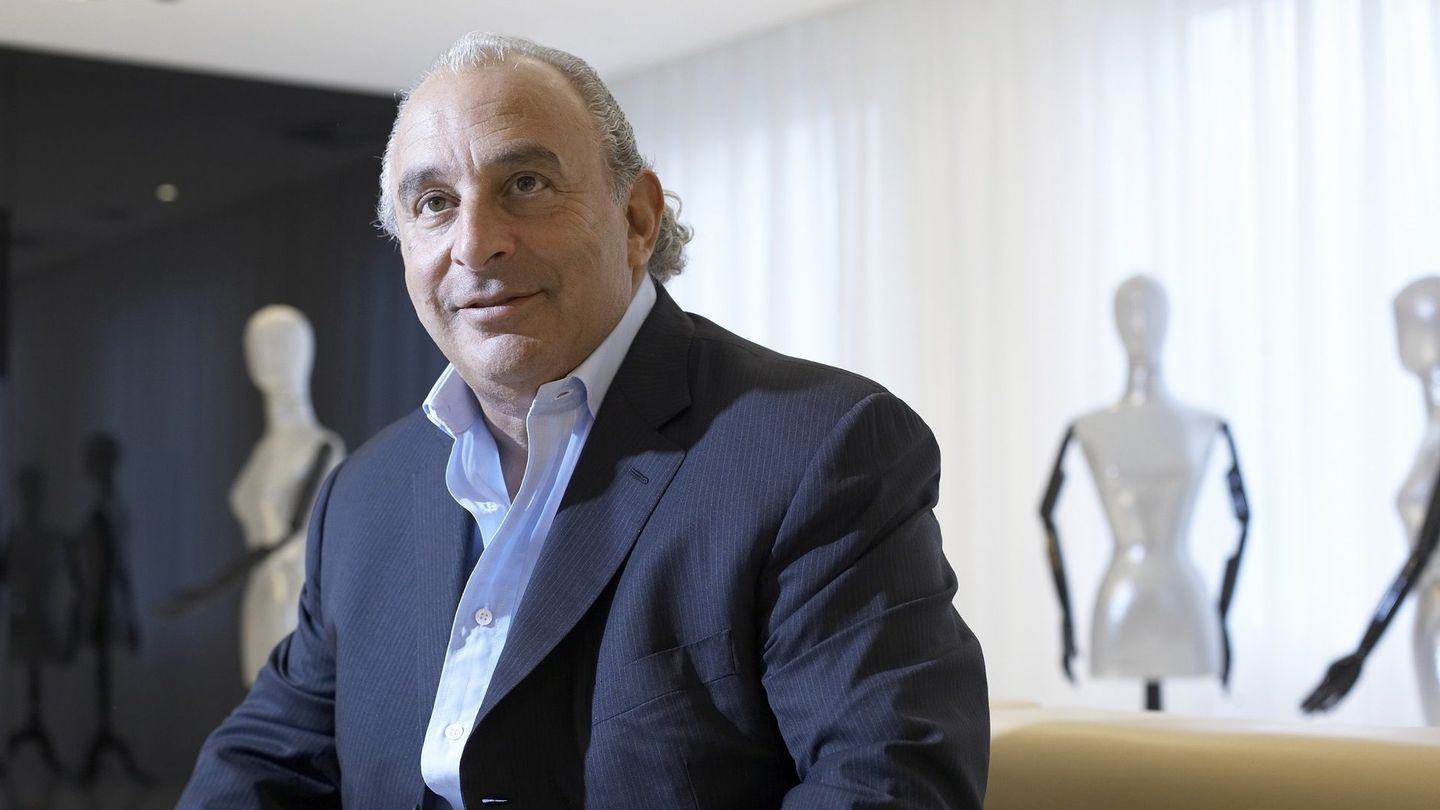

Asset-stripping: How does it work?
In the wake of the BHS scandal, we explore the moral and financial ambiguities of the practice
Words: Gentleman's Journal
‘If a firm has its assets stripped it means they have not been properly used,’ was the oft-repeated mantra of Jim Slater, once the most influential figure in the City of London.
In the most cutthroat of environments, the godfather of ‘asset-stripping’ – gaining control of a company, then selling off its underperforming assets – carved out a personal notoriety as one of the most feared buy-out operators. His became an almost mythological tale, reminiscent of the Greek tragedy of Icarus, who soared far too close to the searing sun; one of rise and fall told through ruthless methods.
If nothing else, the history of modern capitalism frequently proves that when it comes to business, things can easily go wrong, even at the best of times. Mistakes are made, and Lady Luck can be a cruel mistress. But sometimes things can also go wrong not because of bad luck, but because someone is simply determined to pocket the proceeds of failure.
In the financial high times of the late 1960s, Slater, alongside Peter Walker, the promising young Conservative MP for Worcester, used their company, Slater Walker, to launch an aggressive series of corporate raids on underperforming businesses. The firm’s market value soared past £200 million but, just like Icarus, ignored warnings about complacency and hubris – and then Slater saw his own wax wings melt in the heat.
His company nosedived, with devastating consequences for Slater’s publicly declared plans to rake in £1 billion through his controversial dealings. As the Bank of England rode in to take control of the firm, he was hit with 15 charges under the Companies Act by the Department of Trade, having allegedly misused more than £4 million of company funds in share deals.
When the case against him was later dropped, he set about attempting to rise again: helped by his friend Tiny Rowland and an unexpected turn writing a string of successful children’s books to make ends meet.
Today, Slater is seen as the pioneer – as well as a cautionary lesson – for future generations of ‘profit or plunder’ merchants, constantly on the lookout for opportunities to buy and impose efficiency measures on underperforming companies. ‘I don’t deny asset-stripping, though the phrase is used as a smear,’ Slater later declared.
Ironically, it was his saviour Rowland’s company Lonrho which would be memorably branded as ‘the unacceptable face of capitalism’ by irate Prime Minister Ted Heath.It was far from a term of endearment.
The phrase was dusted off again recently by the much-lauded tribunes who make up the truth-searchers of Parliament’s Business Select Committee, as MPs hastily assembled the dunking stool on which to try Sir Philip Green, the ‘King of the High Street’, as BBC Radio 4 once nicknamed him.
Accused of being the greediest fat cat of all following the traumatic collapse high street giants British Home Stores (BHS), the yacht-loving tycoon was warned he could now be stripped of his knighthood unless he funds the company’s £700 million pensions deficit.
The titanic-sized tragedy of BHS being wound up after 88 years of trading again sparked a debate about ‘profit or plunder’ in the City. BHS was struggling, facing intense competition in a tough retail environment. But the owner took quite a bit of money out of the company – and the staff pension fund went into deficit, or, to be more accurate, vanished into a rapidly expanding black hole.
Scenting blood, MPs rounded on the once-feared Sir Philip, accusing him of ‘firing blame to all angles except his own’ and claiming he must bear ‘ultimate responsibility’ after selling the iconic chain of stores for £1 to Dominic Chappell, a thrice-bankrupt former racing driver with no retail experience.
Over a tumultuous six-hour hearing, Sir Philip had his reputation torn to tatters as his explanation for offloading the floundering homes and fittings chain was methodically ripped apart. Frank Field, chair of the Work and Pensions Select Committee, said that Sir Philip’s ‘reputation as the King of Retail lies in the ruins of BHS’ and warned that he had a ‘moral duty’ to fund the pension deficit.
Last summer the Cabinet Office disclosed that it is reviewing Sir Philip’s knighthood and will intensify calls for him to be stripped of the honour.
The hearing was told how the Arcadia boss accrued more than £300 million in dividends for his family from their early, profitable years of owning BHS. It was claimed, during fraught exchanges in a committee room apparently turned bear pit for the day, that he had paid little tax and failed to invest in the company while refusing to address the ‘substantial and unsustainable deficit’ in the pension fund.
Sir Philip acquired BHS in 2000 for £200 million when its renowned pension schemes were said to be running with an enviable surplus. However, the high level of dividends worth more than double the company’s after-tax profits was said to have left it weakened.
In the wake of the public savaging, beamed live on satellite TV like a show trial, Sir Philip retreated back to his beloved £100 million superyacht, Lionheart, pictured moored in various sun-drenched locations around the Mediterranean during the summer.
A parliamentary investigation into the demise of the retailer later stated that BHS had been systematically plundered under its former owners Sir Philip and Chappell. Sir Philip, his family and other BHS shareholders were said to have collected at least £580 million from the retailer, while Chappell’s company Retail Acquisitions was paid an estimated £17 million.
It remains to be seen how the modern fable of the Croydon-born tycoon known for ruthless deal-making, who rose from the rag trade to lord it over a retail empire, and the ‘chancer’ with the fast chat plays out.
Yet we can be certain that this will not be the last chapter in the debate about when making a profit from an acquired business becomes simply a case of plundering. Private equity firms are, at their best, focused on value creation and turning around businesses with distressed balance sheets. Garry Wilson of private equity firm Endless LLP quotes the reversal of fortunes at Blackburn’s Crown Paints, known as ‘the right paint for the job’ and a Royal Warrant-holder, as an example of how private equity works best.
Speaking during a recent debate, he said they had turned £13 million in debt to profits of £20 million in the space of just three years. He said: ‘We bought Crown Paints for £12 million; three years later we sold it for £150 million. Some people may say that’s an awful lot of money for three years’ effort, but you speak to 1,500 employees of Crown Paints in Blackburn. Are they happy that happened or not? They are very happy.’
It is clear where the newly elected 45th President of the United States stands on the issue of asset-stripping. Donald Trump called upon a group of high-profile investors who got rich buying up distressed assets to turn around his campaign when the opinion polls had him floundering.
Billionaire Wilbur Ross, who made his fortune investing in faltering businesses like steel mills and coal mines, earning money from blue-collar industries that others dismissed as beyond saving, has been promoted by the incoming White House team to take over the vaunted role as Commerce Secretary in the new administration.
Banker Ross, who is credited with bailing out real-estate mogul Trump two decades ago after he failed to pay back the high-interest loans he had taken out to build his casino empire, will be tasked with spearheading trade policy and business development.
Trump certainly believes that Ross is the kind of guy who will help ‘Make America Great Again’, rejecting criticism that Ross was too out of touch to serve. As he said during a campaign rally: ‘This guy knows how to make money, folks.’
Ross grew up in New Jersey and attended a Jesuit prep school in New York before earning degrees from Yale and the Harvard Business School. He spent two decades at Rothschild working mainly on bankruptcies before starting his own private equity firm, WL Ross & Co, in 2000. He currently owns an art collection valued at nine figures and is worth an estimated $2.5 billion according to Forbes.
Ross earned a reputation as a so-called ‘vulture investor’ for finding profits in dying businesses, but he described it somewhat differently in an interview with New York Magazine, saying: ‘We’re a phoenix that rebuilds itself from the ashes.’
With Trump in the Oval Office, it is expected to be foreign trade that is likely to take up most of Ross’ time after the new Commander-in-Chief’s pledge to remake free-trade deals. As with every decision made by Trump, it could be a truly inspired choice that will see America once again become a feared international power broker (…or not). Only time will tell.
The real conundrum is this: at what point does making a profit out of a company become plunder?
The process of asset-stripping is not an illegal practice. If a corporate raider sells the target company’s assets individually and pays off its debts, then the Financial Services Authority or any legal body have no room for investigation. However, some firms perform the process illegally. If found guilty, they may incur a substantial fine or even prison.
Asset-stripping by private equity firms in Europe is now regulated pursuant to the Alternative Investment Fund Managers Directive. A corporate raider may attain a company and swiftly move to auction off its assets. Often the profits have returned to the raider to repay debts accrued by the acquisition – all the time raising their own.
Over the last decade the topsy-turvy nature of the mobile phone markets has provided fertile ground for asset-strippers, allowing them to rake in huge returns over short periods of time. In 2011, BC Partners, a private equity firm specialising in buyouts and acquisitions financing in Europe and the United States, acquired Phones 4u for a fee in the region of £700 million.
At this point in time, Phones 4U had already entered administration and had deep financial struggles. However, this did not prevent BC Partners from taking a £223 million dividend in order to pay off some of its own debts. Under the ownership of BC Partners, Phones 4U had little financial freedom to expand and claim back the contracts off EE and other phone companies.
In September 2014 O2, Vodafone and Three decided to withdraw the rights for Phones 4U to sell their products. The company has now no alternative but to sell its individual assets and close down. The net worth of Phones 4U’s assets are estimated to exceed £1.4 billion, which provides BC Partners with the credit to pay off some of its debts and significantly improve its net worth.
Going into administration also, obviously, meant significant job losses running into the thousands. At the time, one employee in the North East described the retailer as falling down around the staff’s ears.
He said: ‘You can frankly dress the whole Phones 4U debacle up how you like. You can claim the networks all worked together like a gang of bullies in the school playground and suggest they schemed a plan to pull Phones 4U’s pants down in front of everybody.
‘Some folk like to speak of bad management and others state an outdated business model was to blame, but the facts are that Phones 4U seemed to be in a healthy position before any involvement of BC Partners. Now it’s dead and a very small group of already hideously wealthy people have made a lot of money from its demise.
‘In fact, it has since been reported that those at BC Partners walked away with nearly £20 million after the Phones 4U collapse and, frankly, that probably explains why none of them were there on my final day to wish me and the great people I had the pleasure of working with good luck in the future. In fact, they didn’t even say goodbye.’
Again, for the winners, the Phones 4U saga was a huge financial victory that seemingly required little more than nerves of steel and a huge amount of front.
Speaking to Gentleman’s Journal, Frank Field, the chairman of the House of Commons Work and Pensions Committee, said: ‘Clearly there is a strong case now for looking at the governance arrangements at large private companies. The government has begun to move on this, but a major question, which should be used to test the potential effectiveness of its green paper on corporate governance, is: “Will this prevent workers and pensioners from ending up in the same boat as those at BHS?”
‘One of the things I am hoping will emerge in the coming months, particularly as the government firms up its reform proposals, is companies proving they can be successful – creating wealth and making profits – without causing detriment to their employees’ working conditions and pension entitlements.’
But as always, there are people who are prepared to cross the legal line, and two methods in particular have entered the lexicon of criminality in recent years. The Finance Bill 2016 introduced last August is aimed at giving HMRC greater powers in cracking down on the outlawed practice of ‘phoenixing’, whereby a company is wound up and the shareholders receive a capital distribution, rather than a dividend, before going on to start up a business in a similar field.
Far less subtle and more easily detectable is the method of liquidation. This acts on completely fraudulent terms and results in a higher punishment from the FSA. Here corporate raiders take ownership of a company on hostile terms, transfer assets over to their name and then put the dilapidated firm into liquidation. This ensures that the corporate raider improves their net worth and has no liability to deal with the firm. In comparison to phoenixing, this has the highest rate of jail sentences for those found guilty.
Under the current system it is clearly too easy to walk in and strip value out of a company. But ultimately it comes down to the individual to make a judgement on how far he or she is prepared to go in pursuit of profits… none of which will provide any comfort to the 11,000 former staff of one of Britain’s most iconic high street brands.
Who knows how history will ultimately judge the ranks of Slater and Sir Philip. Are they ruthless sharks and job-destroying businessmen? Or are they knights on white chargers, rescuing businesses that are otherwise doomed to fail?


